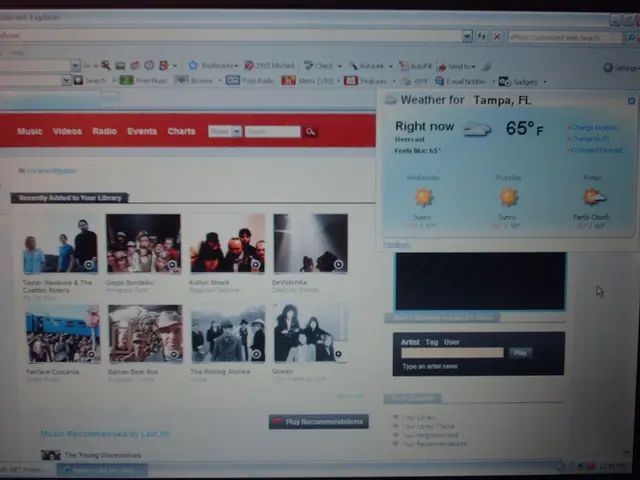Regulatory body ESMA allegedly overstepped its bounds with guidance on crypto providers based outside the EU
In the rapidly evolving world of cryptocurrency, foreign providers must adhere to the European Union's (EU) MiCA (Markets in Crypto-Assets) regulations when dealing with EU residents. These rules are designed to ensure compliance with EU law, investor protection, anti-money laundering (AML), and counter-terrorism financing (CTF) obligations.
According to the European Securities and Markets Authority (ESMA), crypto exchanges and other providers active in the EU must obtain a license under MiCA to legally offer services to EU residents. This is facilitated through a passporting mechanism, allowing authorized CASPs (Crypto-Asset Service Providers) to operate across member states.
Foreign providers without EU authorization are not permitted to offer services to EU residents legally. Consequently, they should implement geo-blocking or reject sign-up attempts from users within the EU territory to avoid breaching MiCA regulations and EU AML/CFT rules.
The client's own initiative, as construed narrowly by ESMA, should be construed as not requiring explicit action like emailing the exchange to view a trading pair. If a EU resident approaches a non-EU crypto provider at their own exclusive initiative, they can sign up as a customer. However, after signing up, a non-EU crypto provider cannot market different types of crypto-assets or services to an EU resident.
ESMA's guidance is broad, and if a provider like fabDAM does any marketing that could inadvertently reach an EU resident, it would have to block EU residents. fabDAM cannot market 'new' types of crypto-assets or services to EU residents.
The regulatory framework requires CASPs and issuers to maintain compliance with investor protection, AML, and reserve/liquidity rules within the EU. Non-compliant foreign platforms are excluded from serving EU customers. For any non-EU crypto service providers, it will be tricky for the EU to take enforcement action if you have no presence or activities in Europe.
MiCAR Article 61 states that a third-country firm providing crypto-asset services to an EU client at their own exclusive initiative is not subject to authorization under Article 59. However, a third-country firm soliciting clients or prospective clients in the EU will be deemed to not be providing a service on the client's own exclusive initiative.
ESMA will issue guidelines within 18 months of MiCA's entry into force to specify when a non-EU crypto provider is deemed to solicit EU clients. Additionally, ESMA will issue guidelines on supervision practices to detect and prevent circumvention of MiCA regulations.
This approach prevents unregulated foreign platforms from operating in the EU market, protects EU consumers, and upholds the integrity of the EU crypto regulatory ecosystem as laid out under MiCA and supervised by ESMA.
[1] MiCA Regulation: https://ec.europa.eu/info/law/better-regulation/have-your-say/initiatives/12529-Regulation-on-Markets-in-Crypto-Assets-MiCA [2] ESMA's MiCA webpage: https://www.esma.europa.eu/micacryptoassets [3] ESMA's MiCA Q&A: https://www.esma.europa.eu/micacryptoassets/qa [4] ESMA's AML/CFT webpage: https://www.esma.europa.eu/policy-and-supervision/anti-money-laundering-and-counter-terrorist-financing-aml-ctf
Read also:
- Ford Discontinues Popular Top-Seller in Staggering Shift, Labeled as a "Model T Event"
- 2025 Witnesses a 27% Surge in Worldwide Electric Vehicle Sales, Despite Opposition to Electrification Policies in the U.S.
- Dubai-bound: Omega Seiki Mobility, an electric vehicle company from India, prepares for assembly establishment
- Best Strategies for Software Updates in SCCM and WSUS








